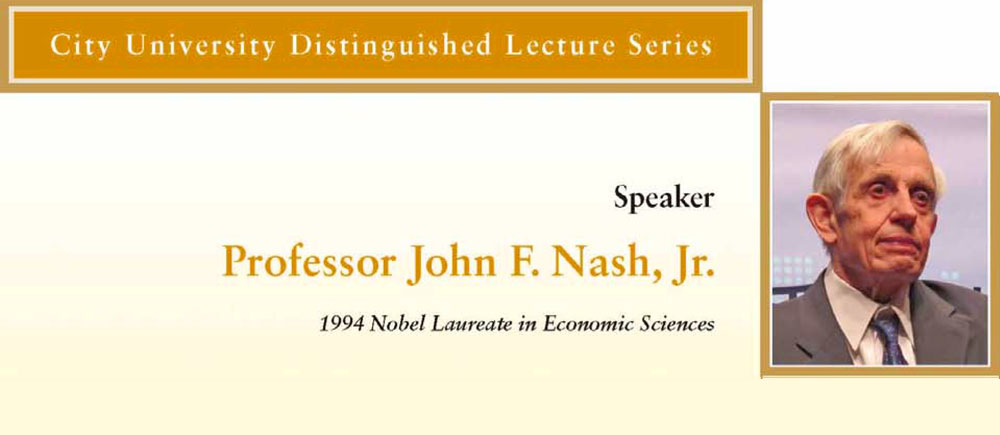
| Date: | 07 November 2011 |
|---|---|
| Speaker: | Prof. John F. Nash, Jr. |
A legend in the field of game theory, Professor John F. Nash Jr. has provided insight into the forces that govern chance and events inside complex systems in daily life. His influential thesis “Non-cooperative Games” published in Annals of Mathematics when he was only 22 earned him a doctorate at Princeton University. It established the mathematical principles of game theory, a branch of mathematics that examines rivalries among competitors with mixed interests. Known as the Nash solution, or the Nash equilibrium, his theory attempted to explain the dynamics of threat and action among competitors. It has been widely applied by business strategists and helpful to evolutionary biologists and social scientists.
He was awarded the 1994 Nobel Prize in Economic Sciences as a result of his work in game theory, alongside Hungarian-American economist Professor John Harsanyi and German mathematician Professor Dr Reinhard Selten. He is also the recipient of the John von Neumann Theory Prize and the Leroy P. Steele Prize. He is now Senior Research Mathematician in the Department of Mathematics at Princeton University.
Professor Nash received his bachelor’s and master’s degrees in mathematics in 1948 from the Carnegie Institute of Technology (now the Carnegie Mellon University) in Pittsburgh, Pennsylvania, and two years later completed his doctorate at Princeton University. He joined the faculty of the Massachusetts Institute of Technology in 1951.
Professor Nash has received many awards, including an honorary Doctor of Science and Technology from Carnegie Mellon University in 1999; an honorary degree in economics from the University of Naples Federico II in 2003; and an honorary doctorate in economics from the University of Antwerp in 2007. He is a prolific guest speaker at international events, appearing at the Warwick Economics Summit in 2005, which was held at the University of Warwick, UK.